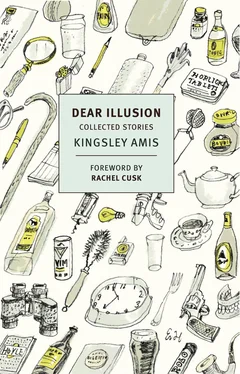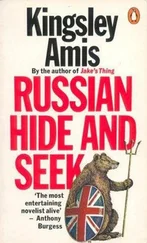ROGACHEV: There, there, my poor major, what you need is a drink. ( Rings handbell ) Again, we must pay attention to the larger picture.
GENERAL: The larger picture is that, far from the British soldier being in a bad way, it is the Russian. Every man in our army, high and low, is dismayed and daunted and in a state of fear at the thought of an enemy who can do such things. We shall lose the war in the Crimea, we shall never defeat Turkey while she has such an ally, and India is safe from us while the British remain.
The double doors open. JOSEPH enters with SERGEI.
ROGACHEV: Ah, Joseph. Drinks for everybody, please. Champagne for his royal highness…
JOSEPH: At once, my lord. ( To SERGEI) Champagne here… vodka here…
MAJOR: ( To general) If you call for a vote now, sir, you will assuredly carry the day.
GENERAL: Will you support me?
MAJOR: Of course, and not only I.
GENERAL: Very well. ( Raises his voice ) I move that we petition the High Command to proceed no further with any plan to move against India. I call for a show of hands.
ROGACHEV: Immediately, general?
GENERAL: If it please your honour.
ROGACHEV: So be it. All present, please signify. For the general’s motion, that the Indian plan be called off forthwith.
Hands are raised in silence.
ROGACHEV: Against, that we are still resolved to move against India.
Another pause.
ROGACHEV: In the circumstances I will not call for a toast.
PRINCE: Better luck next time, Rogachev.
ROGACHEV: I thank your royal highness for an impeccably British sentiment. ( Irritably ) That will be all, Joseph.
JOSEPH: Thank you, my lord count.
Sequence 8 — London
The Retrenchment Club. We move over to where CECIL and MORRIS are sitting .
CECIL: Well, Morris, you look well enough to take a glass of port.
MORRIS: Thank you, my lord. I think I could manage just the one.
CECIL: I suppose one or other of us has to say a great deal has happened since we last sat here.
MORRIS: Yes.
CECIL: Do you mind talking about it?
MORRIS: No. No, not at all, my lord.
CECIL: Can you tell me how many were lost in the charge? The reports I’ve seen disagree.
MORRIS: I know for a fact that 673 officers and men began the charge. Afterwards, only 195 answered at the first muster. I was not one of them, and many unwounded men had lost their horses and only turned up later. Altogether 113 men were killed and 134 wounded. But for the French attack that followed, there would have been many more.
CECIL: A hundred and thirteen too many.
MORRIS: Oh, most certainly, my lord, but what would you? And if it’s any comfort, Lew Nolan would very likely have done just as he did do if you had never met him. He was a mad fellow.
Closing notes of the Last Post .
CECIL: Theirs not to reason why, theirs but to do and die. But not in vain.
PS to Captain Nolan’s Chance
Ever since I first heard of it as a boy, I have suspected that the charge of the Light Brigade at Balaclava was the result not of a blunder but of somebody’s intention. My recent look at the matter in some detail has confirmed me in this view. For instance, Cecil Woodham-Smith’s excellent, very full study, The Reason Why (1953), leaves one with at any rate a strong suspicion that Captain Lewis Nolan deliberately and vitally misled the commander of the Cavalry Division, Lord Lucan, about the objective of the charge.
Nolan had a unique chance to do so. He was the ADC of General Airey, Lord Raglan’s second-in-command and the Officer who wrote down and signed the fatal message that Nolan delivered. Up on the heights overlooking the battlefield, Raglan and Airey and their staff, who included Nolan, could see both (1) the captured British guns Raglan actually intended the Cavalry Division to recapture; and (2) the Russian artillery battery at the far end of the North Valley. From his lower position, Lucan could see neither (1), an easily attained objective, nor (2), to be attacked only at great risk. He was thus vulnerable to Nolan’s deception (and had negligently failed to acquaint himself with the Russian groupings).
The reason why Nolan misled Lucan, if he did, would clearly have been something above and beyond his amply documented zeal for action. He was also a fanatical believer in the unrealized powers of cavalry, especially light cavalry. This too is well documented; after a dazzling early career as a cavalryman he wrote not one but two books on the subject, and much of what I put into his mouth in the first sequence of my play is a close paraphrase of some views he expressed. But for good measure, and to contribute something of my own, I invented a small conspiracy that included Nolan and plotted to convince a sinister Russian cabal of the formidable fighting qualities of the British soldier, especially the cavalry soldier.
Two points might be added here. I hope my conspiracy and its doings are fun, but in the end I incline to the view I attribute to Morris in his last speech, that Nolan as portrayed ‘would very likely have done just as he did do’ if there had been no conspiracy. And as for whether the historical Nolan really misled Lucan on purpose, we shall never know. Still, I rather think he did. True, he had a lot of luck with the incompetence that surrounded him, but it was the sort of luck that comes the way of murderous maniacs.
With exceptions like Nolan’s discourse, most of my London and St Petersburg scenes (sequences 1, 2, 4, 6–8) are fiction. The Crimean sequences, 3 and 5, are largely factual, here and there closely so. For instance, Nolan’s face-to-face diatribe against Lucan, Cardigan’s remarks about siege warfare, Paget’s questions about the significance of the two flags (and the cannonade that interrupts them), Campbell’s words to his men, Morris’s exchange with Cardigan, the text of the order to Lucan (verbatim), Nolan’s placing himself beside Morris, Lucan’s talk with Cardigan just before the charge, the incident of Paget’s cigar and Cardigan’s orders immediately following, the momentary lull in firing, the circumstances of Nolan’s death and what Cardigan and Scarlett say about it afterwards are all matters of record. That record comes chiefly of course from what survivors of the battle wrote about it subsequently, and if one sometimes feels that they remembered with advantages, the capacity of human beings to say memorable or melodramatic things at great moments should not be forgotten.
Morris’s version of the numbers killed and wounded in the charge is taken from p. 272 of The Age of Reform (1938) by E. L. Woodward.
I — The Pacific Operation
… The Imperial Fleet that sailed from the Kuril Islands in the last days of November was the most powerful naval force ever assembled. It consisted in the first place of eleven battleships. The largest of them, Yamato , in which Admiral Isoruku Yamamoto flew his flag, was at 68,200 tons displacement one of the two largest battleships ever built, the other being her sister ship Musashi , then uncompleted. Each of their nine 18.1-inch guns (the biggest ever carried afloat) fired shells weighing 3,220 pounds. Top speed was a remarkable 27 knots to a range of 7,200 miles.
With the exception of the sister ships Nagato and Mutu , each bearing eight 16-inch guns, the other battleships in the Grand Fleet carried 14-inch primary armament, altogether providing a broadside of eighty pieces. Speeds of 22.5–28 knots could be attained. All the above ships could launch up to three aircraft via catapult.
The accompanying carrier component was likewise uniquely strong at the time, consisting as it did of no fewer than nine vessels, from the impressive sister ships Soryu and Hiryu with their capacity of seventy-one aircraft each and their top speed of 34.5 knots, to the smaller Taigo with her twenty-seven aircraft and 21 knots. In aggregate these ships carried the prodigious total of 380 aircraft.
Читать дальше












